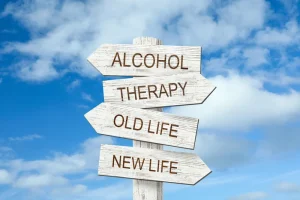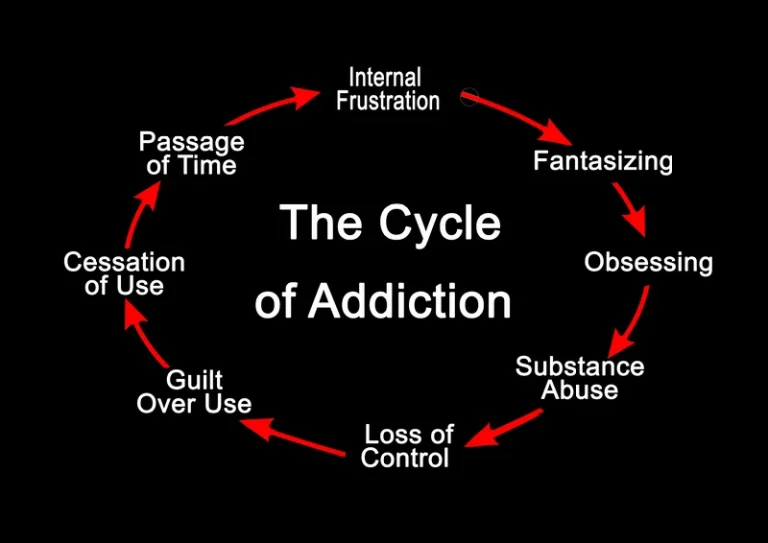
Our DNA ultimately dictates our physical and behavioral traits. Some genes are linked with alcoholism and alcohol use disorder, but these alone do not cause addiction. But, if you consume more than that, you might be on the verge of developing https://ecosoberhouse.com/ an addiction. Because of its relatively low alcohol content, wine has a lower abuse potential if consumed moderately. A most commonly asked question after alcohol is considered a drug is which type of alcohol is the most addictive.

Alcoholism May Cause Alcohol Dependence
- Although personal events and cultural factors affect drug use trends, when young people view drug use as harmful, they tend to decrease their drug taking.
- Has been an expert in addiction medicine for more than 15 years.
- Both disrupt the normal, healthy functioning of an organ in the body, both have serious harmful effects, and both are, in many cases, preventable and treatable.
- Based on their assessment, they will work out a treatment plan for the person.
- Alcohol abuse means that you are excessively drinking alcohol.
Usually, a person who develops addiction is trying to mask a bigger issue. People suffering from addiction are vulnerable, and compassion is the way to go. You can only help someone when you have all the right information. The more you know, the more you will understand how to help them.
What Are the Symptoms of Alcohol Use Disorder?
This means they can be especially helpful to individuals at risk for relapse to drinking. Combined with medications and behavioral treatment provided by health care professionals, mutual-support groups can offer a valuable added layer of support. If you are unsure about your insurance plan, you can verify it. Our addiction treatment programs can be completed online; you only need a mobile device or a laptop. We have helped many clients recover, and we can help you too!
Chapter 2: Understanding Alcohol Addiction
In individual therapy, individuals work with a therapist to identify and address the underlying causes of addiction and develop coping strategies to prevent relapse. Group therapy provides individuals with the opportunity to connect with others who are also in recovery, share experiences and offer support. alcohol vs drugs Family therapy can be beneficial for those who have strained relationships with loved ones due to addiction. As with most other chronic diseases, such as diabetes, asthma, or heart disease, treatment for drug addiction generally isn’t a cure. However, addiction is treatable and can be successfully managed.

Beware the Signs and Symptoms of Alcohol Addiction
They argue that marijuana is not addictive and has many beneficial qualities, unlike the "harder" drugs. Previously, the term ‘substance use’ was meant to describe mild use of a substance, and the term ‘substance abuse' was used to describe moderate or more severe use. We don’t use the term ‘abuse’ anymore, as language is important. Despite being aware of the consequences of alcoholism and long-term alcohol use, many individuals continue to drink, which is the nature of addiction. The Sinclair Method is the standard treatment protocol for alcohol dependence in Finland, the method is also used in the U.K., but the method has yet to catch on in the United States. In 2001, David Sinclair, PhD, a researcher in Finland claimed an 80 percent cure rate for alcohol dependence when anti-alcohol drugs Revia or Vivitrol are prescribed according to his Sinclair Method.
- Because we talk about alcohol and drugs as different categories without defining them.
- Fortunately, researchers know more than ever about how drugs affect the brain and have found treatments that can help people recover from drug addiction and lead productive lives.
- In 2001, David Sinclair, PhD, a researcher in Finland claimed an 80 percent cure rate for alcohol dependence when anti-alcohol drugs Revia or Vivitrol are prescribed according to his Sinclair Method.
- Often, the terms drug abuse and substance abuse are used interchangeably.
Why Is Alcohol Addictive?

And let’s stop pretending those "other drugs" are so different. Alcohol and drug addiction are complex issues that affect millions of people worldwide. Addiction involves compulsive, harmful substance use or behaviors. Dependence is when the body physically relies on a substance. Tolerance is when the body’s response to a substance diminishes over time.
If your loved one needs help
Cognitive behavioral therapy (CBT), contingency management, and motivational enhancement therapy are a few types of therapy that may be used. Medications can also help people with opioid, nicotine, or alcohol addiction. If you have struggled with an alcohol use disorder, or witnessed someone you love struggle with alcohol dependence, you know how powerful alcohol is as a drug. It may seem like reaching out for help can be challenging; however, there is light at the end of the tunnel. There are many inpatient and outpatient treatment centers available to help you or your loved one overcome their addiction to alcohol and begin the road to recovery. In regard to the physically addictive aspect, drinking alcohol stimulates the release of endorphins and dopamine, both of which produce euphoric sensations, such as feelings of pleasure.
Types of Alcohol: Which Alcoholic Beverage is Most Addictive?
Before they know it, alcohol abuse has turned into alcoholism. In fact, experiencing alcohol withdrawal syndrome is one of the first signs of alcoholism for those who may not have previously seen their drinking habits as a problem. Binge drinking is a pattern of alcohol abuse in which a person quickly consumes a lot of alcohol. Essentially, alcoholism is the point at which alcohol abuse becomes alcohol addiction. Alcohol abuse, also called problem drinking, occurs when drinking alcohol becomes an issue that creates negative consequences for a person. Often, the terms drug abuse and substance abuse are used interchangeably.

Risk and protective factors may be either environmental or biological. More good news is that drug use and addiction are preventable. Results from NIDA-funded research have shown that prevention programs involving families, schools, communities, and the media are effective for preventing or reducing drug use and addiction. Although personal events and cultural factors affect drug use trends, when young people view drug use as harmful, they tend to decrease their drug taking. Therefore, education and outreach are key in helping people understand the possible risks of drug use.